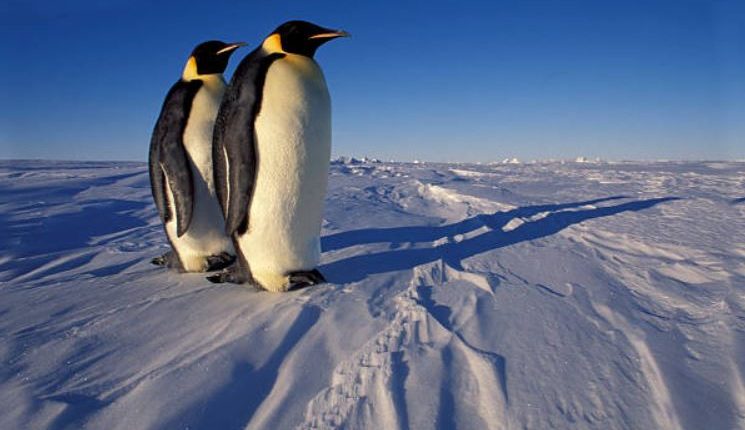Scientists Identify New Emperor Penguin Colonies in Antarctica
In a groundbreaking development, satellite imagery has revealed the presence of previously unknown colonies of emperor penguins in Antarctica.
The discovery, announced on Wednesday, sheds light on the adaptive behavior of these iconic birds in the face of environmental challenges.
A Sign of Shifting Habitats Amid Climate Change
Emperor penguins, classified as near threatened with extinction, stand as the largest penguins on Earth.
Their unique breeding habits involve raising chicks in the harsh Antarctic winter on frozen sea ice. However, the vulnerability of this process is heightened when the ice breaks up prematurely, putting the chicks at risk.
Research conducted by the British Antarctic Survey suggests that at least some emperor penguins are relocating their colonies due to the impacts of climate change.
Peter Fretwell, a researcher at the survey, revealed that one colony near Halley Bay shifted approximately 30 kilometers (19 miles) to the east. The move was prompted by unstable conditions that emerged in 2016, rendering the old location precarious.
“Emperor penguins have taken it upon themselves to try to find more stable sea ice,” explained Fretwell.
Newly Discovered Emperor Penguin Colonies Unveiled in Satellite Imagery

The discovery includes four newly identified colonies, which are believed to have existed for many years without detection.
Though relatively small, with fewer than 1,000 breeding pairs each, these colonies contribute to the overall understanding of penguin distribution. Currently, scientists are aware of 66 emperor penguin colonies worldwide.
While the newfound colonies may not significantly alter the total population estimate of less than 300,000 breeding pairs, they provide valuable insights into the potential shifts in penguin habitats.
Daniel Zitterbart, a penguin researcher at the Woods Hole Oceanographic Institution, emphasized the dynamic nature of breeding sites and highlighted the likelihood of more penguins being on the move in a warming world.
The research raises intriguing questions about whether the newly identified colonies represent breakaway groups from larger colonies or independent formations.
As the breeding sites of emperor penguins continue to undergo changes, scientists emphasize the importance of monitoring and understanding these shifts to aid in the conservation efforts of these remarkable birds facing the challenges of a changing climate.

